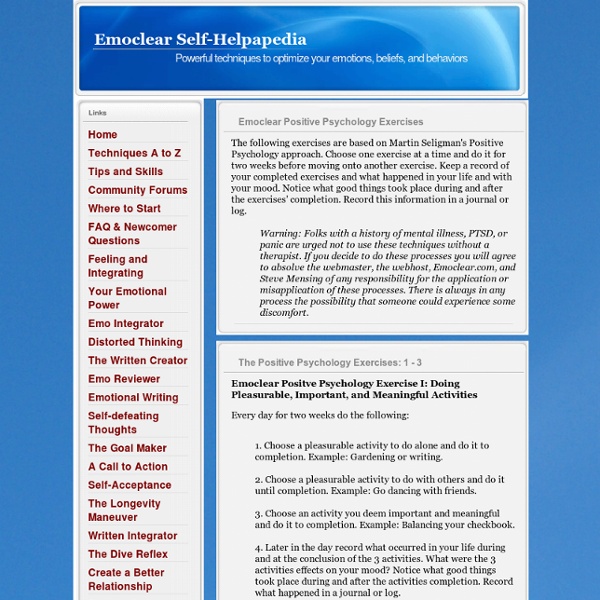MindMapping: Mind Maps, PDF Management and Reference Management
Are you using mind mapping tools such as MindManager, FreeMind or XMind? And reference management tools such as JabRef, Endnote, or Zotero? And do you sometimes even create bookmark in PDFs? Then you should have a look at SciPlore MindMapping.
Mindfulness (psychology)
Mindfulness as a psychological concept is the focusing of attention and awareness, based on the concept of mindfulness in Buddhist meditation.[1] It has been popularised in the West by Jon Kabat-Zinn.[2] Despite its roots in Buddhism, mindfulness is often taught independently of religion.[3][4] Clinical psychology and psychiatry since the 1970s have developed a number of therapeutic applications based on mindfulness for helping people suffering from a variety of psychological conditions.[5] Several definitions of mindfulness have been used in modern psychology. According to various prominent psychological definitions, Mindfulness refers to a psychological quality that involves bringing one’s complete attention to the present experience on a moment-to-moment basis,[6] or involves
Ubuntu Hacks/Multimedia
From WikiContent A modern computer can be a nifty little entertainment center; it has fast video, stereo speakers, probably plenty of disk space for movies and videos. So, how come Ubuntu doesn't know what to do when you insert a DVD or double-click on a video or audio file? The fundamental problem is that there are some critical pieces to the multimedia puzzle that Ubuntu can't distribute in all jurisdictions, so you need to go out and get those pieces yourself. Fortunately, Ubuntu makes it easy for you to install those bits once you do obtain them. In this chapter, you'll learn how to get Ubuntu to support more multimedia formats, play DVDs, and even let you buy music online.
25 Acts of Body Language to Avoid
Our body language exhibits far more information about how we feel than it is possible to articulate verbally. All of the physical gestures we make are subconsciously interpreted by others. This can work for or against us depending on the kind of body language we use. Some gestures project a very positive message, while others do nothing but set a negative tone. Most people are totally oblivious to their own body language, so the discipline of controlling these gestures can be quite challenging.
The Last Lecture: A Positive Psychology Case Study
My colleague Ben Dean and I recently conducted an Internet survey of 1464 adults interested in positive psychology that asked what they would most like to know about this new field. A large number wanted compelling case examples of actual people who lived life well, who embodied the strengths of character that we have been studying with quantitative methods. The world's greatest teachers, from Socrates and Jesus to the present, have always used parables to instruct and inspire others, and in the disciplines of business and law, the detailed examination of particular cases is the preferred method of teaching. Psychologists have also relied on cases, but these have been psychiatric histories that centered on people's problems. Here is another exception, a marvelous example of what it means to live well: Carnegie Mellon Computer Science Professor Randy Pausch, whose "last lecture" is all over the Internet (e.g.. www.randypausch.com ).
Linux Newbie Guide: Shortcuts And Commands
[an error occurred while processing this directive] Linux Shortcuts and Commands: Linux Newbie Administrator Guideby Stan and Peter Klimas This is a practical selection of the commands we use most often. Press <Tab> to see the listing of all available command (on your PATH). On my small home system, it says there are 2595 executables on my PATH.
8-Circuit Model of Consciousness
The eight-circuit model of consciousness is a theory proposed by Timothy Leary and expanded on by Robert Anton Wilson and Antero Alli. The model describes eight circuits of information (eight "brains") that operate within the human nervous system. Each circuit is concerned with a different sphere of activity.
Feature Story: Writing to Heal: Research shows writing about emotional experiences can have tangible health benefits
For nearly 20 years, Dr. James W. Pennebaker has been giving people an assignment: write down your deepest feelings about an emotional upheaval in your life for 15 or 20 minutes a day for four consecutive days. Many of those who followed his simple instructions have found their immune systems strengthened. Others have seen their grades improved. Sometimes entire lives have changed.



